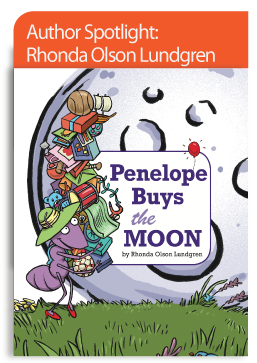Success in the Places Where People Gather
 Saturday, April 16, 2011 at 11:54AM | in
Saturday, April 16, 2011 at 11:54AM | in  Book Bridge Blog,
Book Bridge Blog,  Children's Literature,
Children's Literature,  Marketing Tips,
Marketing Tips,  Publishing Industry
Publishing Industry  It's true. For now, traditional bookstores are dwindling in numbers. But as such stores and mainstream sales channels retrench to develop alternate strategies, new opportunities emerge for authors to reach readers. In that, it's an exciting and productive time to be an independent author. Successful independent authors know how to capitalize on innovative, non traditional events. At Book Bridge Press, we tell clients to establish events in places where people gather. Events and booksignings in supermarkets, gift stores, coffee shops and family recreation places are good choices, as are opportunities during association luncheons, community meetings and more. Such events are innovative, niche-oriented, and productive for the author. As well, the author isn't competing with thousands of other books in the room. At that moment, the light is shining on them - and their book only. This is a rich sales position to create for one's product.
It's true. For now, traditional bookstores are dwindling in numbers. But as such stores and mainstream sales channels retrench to develop alternate strategies, new opportunities emerge for authors to reach readers. In that, it's an exciting and productive time to be an independent author. Successful independent authors know how to capitalize on innovative, non traditional events. At Book Bridge Press, we tell clients to establish events in places where people gather. Events and booksignings in supermarkets, gift stores, coffee shops and family recreation places are good choices, as are opportunities during association luncheons, community meetings and more. Such events are innovative, niche-oriented, and productive for the author. As well, the author isn't competing with thousands of other books in the room. At that moment, the light is shining on them - and their book only. This is a rich sales position to create for one's product.
Better yet, these events often allow for better, more focused promotion to occur. Eager to utilize the draw and fully aware of the cross-benefit it offers, business owners of such establishments are often quite good at promoting events to their customers. It's a win-win. While we are not stating that independent authors should ignore traditional bookstore events, such channels are only one part of a full equation, and connecting with new readers in places where people gather is an important element to any successful sales and promotion plan.
On that note, Book Bridge Press client Rhonda Lundgren will be signing her book Penelope Buys the Moon at Bruegger's Bagels in Minnetonka, Minnesota, today from 3 p.m. to 5 p.m. as promoted in Lake Minnetonka Magazine. Bruegger's Bagels is a lovely coffee and bagel shop and neighborhood gathering place. This is a smart strategy, as the exposure and foot traffic at a coffee shop on a Saturday afternoon should promise to produce great results for this author.
We realize that some people may think this is not as glamorous or exciting as seeing one's name and book promoted on a poster in a large bookstore chain. But a name on a poster doesn't always equate to better monetary rewards or broader exposure to new readers when compared to the rewards an author can gather in a non traditional setting. It's important to keep in mind that the goal is to sell books, and cultivate a readership. By establishing events in the places where people gather provides tremendous opportunity for an author to accomplish both. And remember, a following is established one reader at a time, one autograph at a time. Whether an author connects beneath the bright lights of a bookstore or at a community farmer's market isn't important. The important fact is that they connect - and grow.




